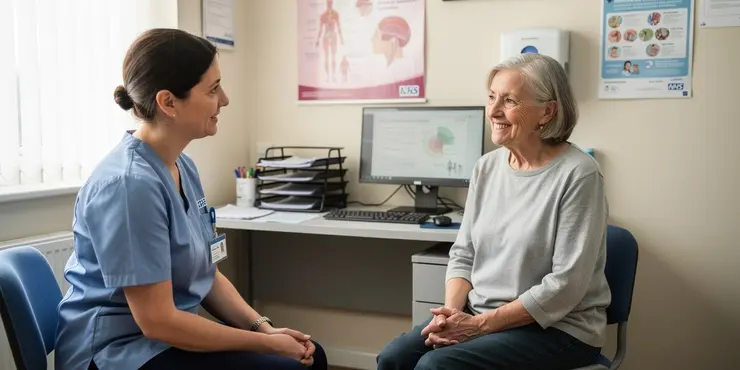
Find Help
More Items From Ergsy search
-
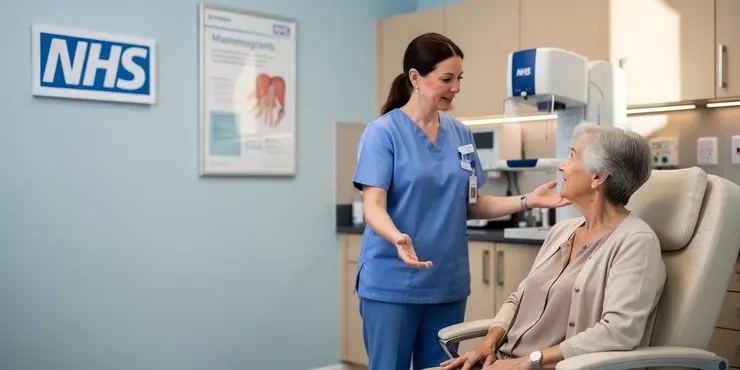
Mammograms
Relevance: 100%
-
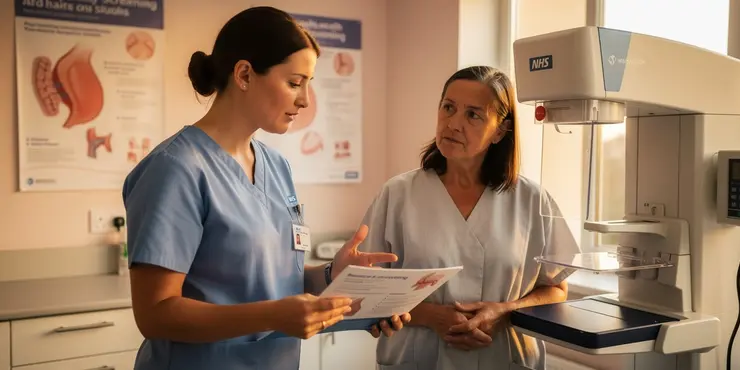
What is a mammogram?
Relevance: 95%
-
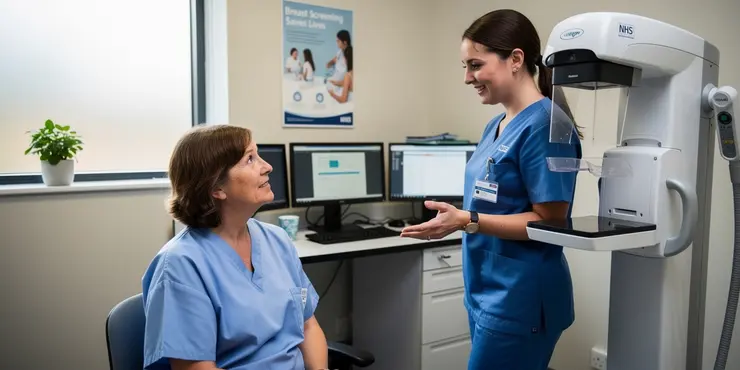
What is a mammogram?
Relevance: 95%
-
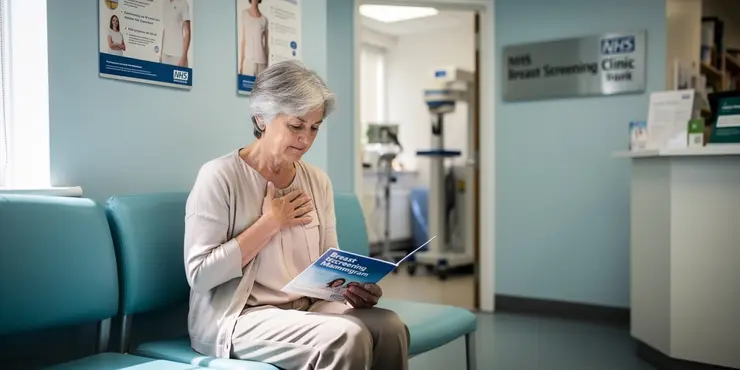
Is a mammogram painful?
Relevance: 94%
-
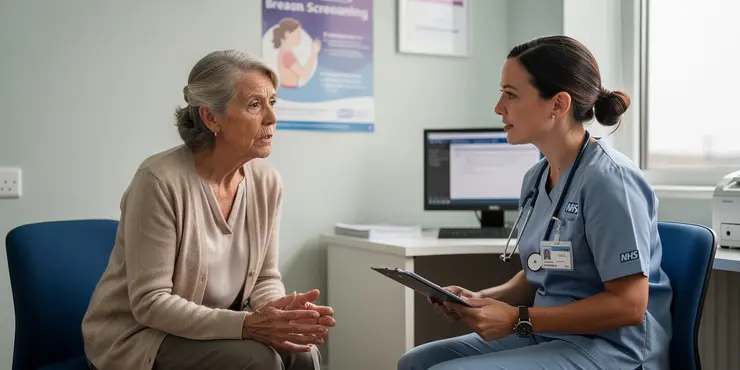
How reliable are mammograms?
Relevance: 91%
-
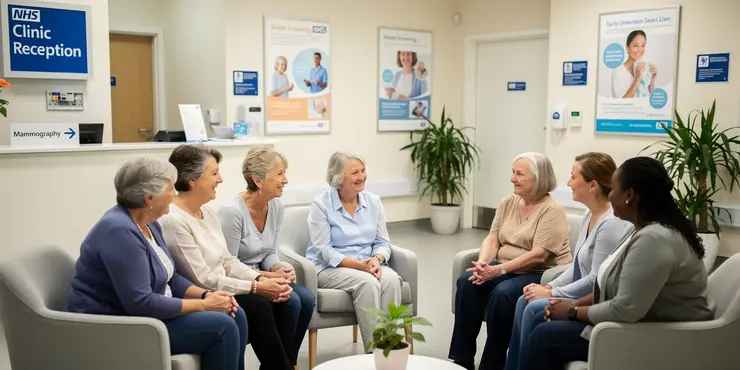
Are mammograms free on the NHS?
Relevance: 90%
-
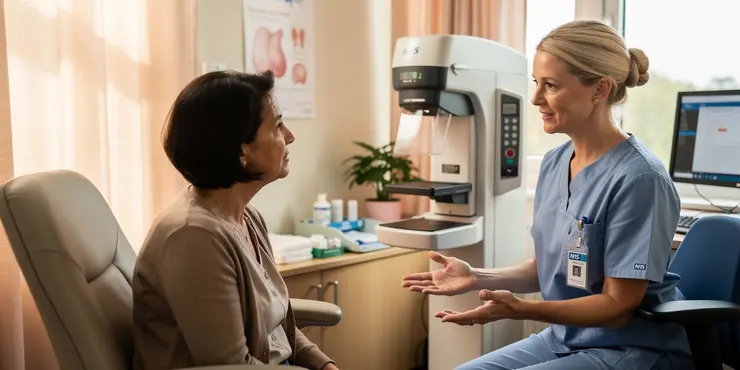
What happens during a mammogram?
Relevance: 88%
-
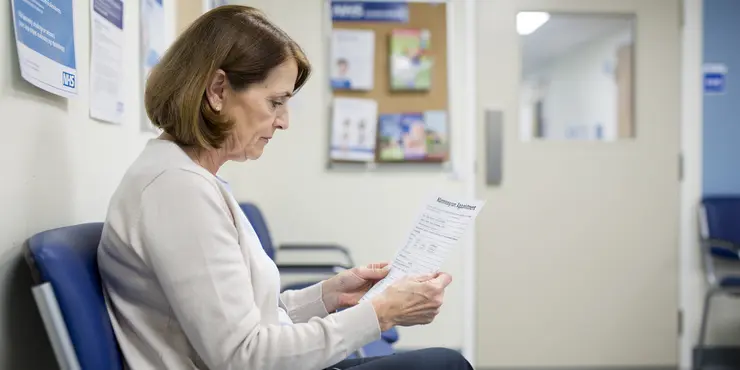
How do I book a mammogram?
Relevance: 87%
-
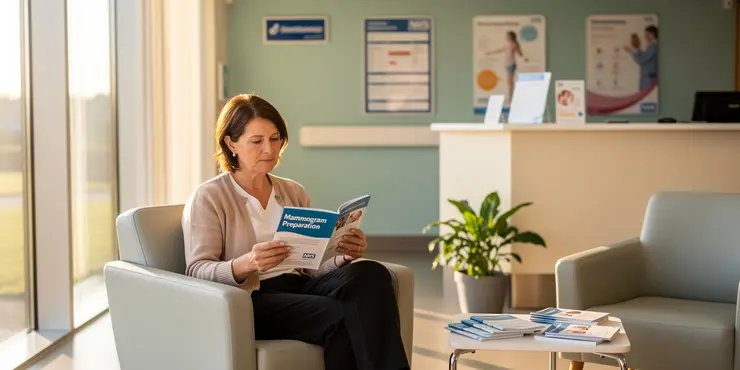
How do I prepare for a mammogram?
Relevance: 87%
-
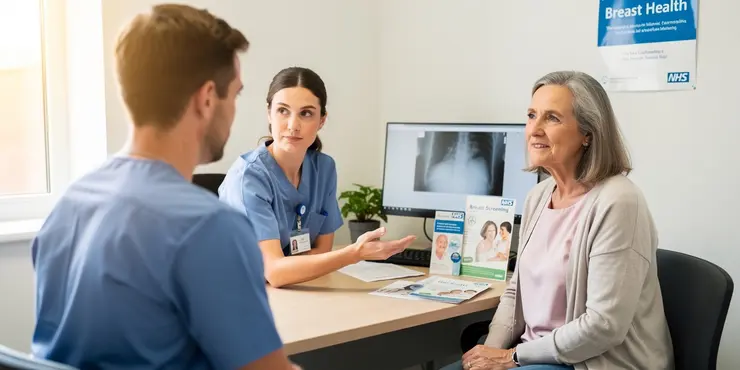
What are the benefits of regular mammograms?
Relevance: 87%
-
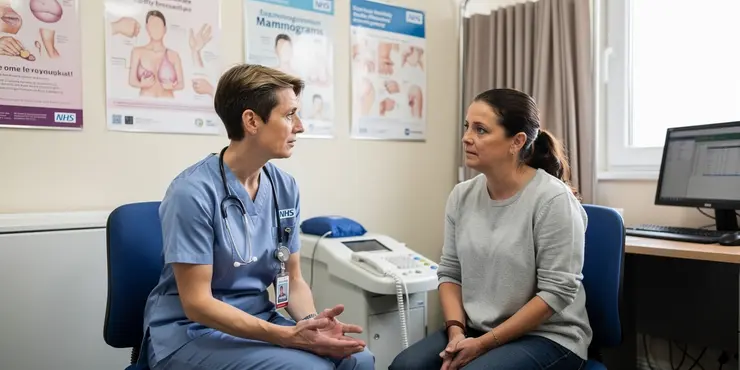
Are there any risks associated with mammograms?
Relevance: 87%
-
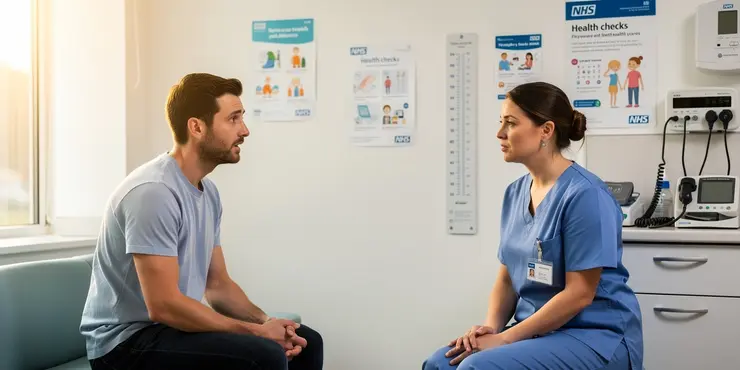
Can men have mammograms?
Relevance: 86%
-
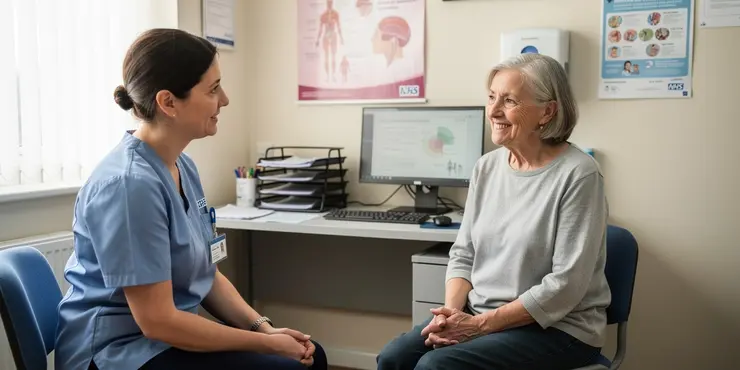
How often should I get a mammogram?
Relevance: 84%
-
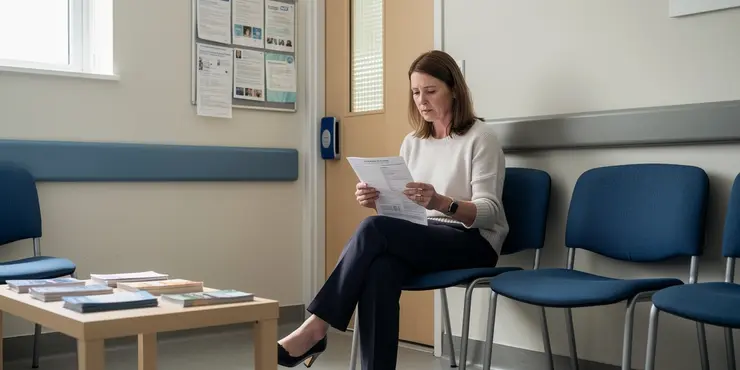
What if my mammogram results are abnormal?
Relevance: 83%
-
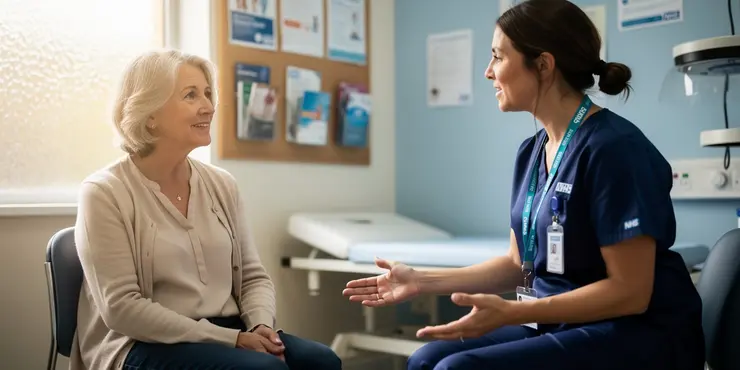
Can I have a mammogram if I have breast implants?
Relevance: 82%
-
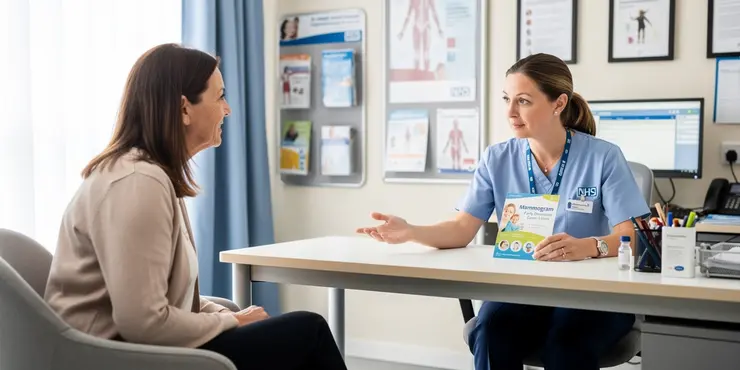
At what age should I start having mammograms?
Relevance: 80%
-
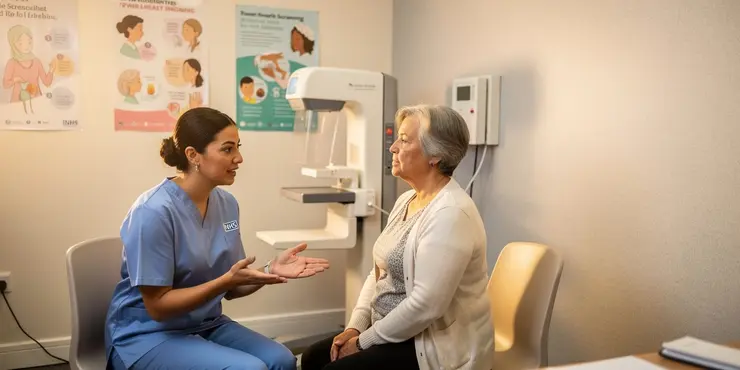
Tower Hamlets breast screening programme
Relevance: 42%
-
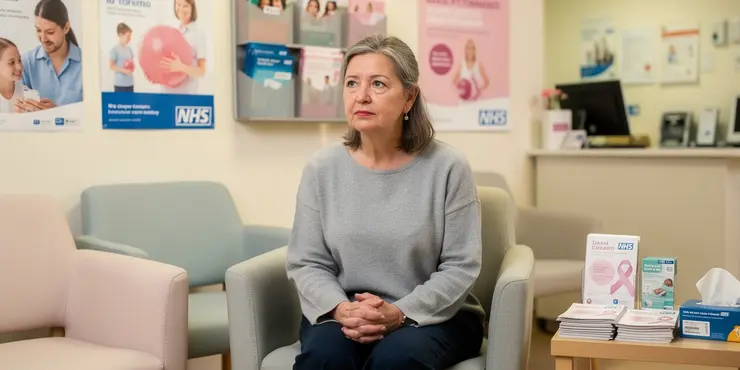
NHS breast cancer screening
Relevance: 41%
-
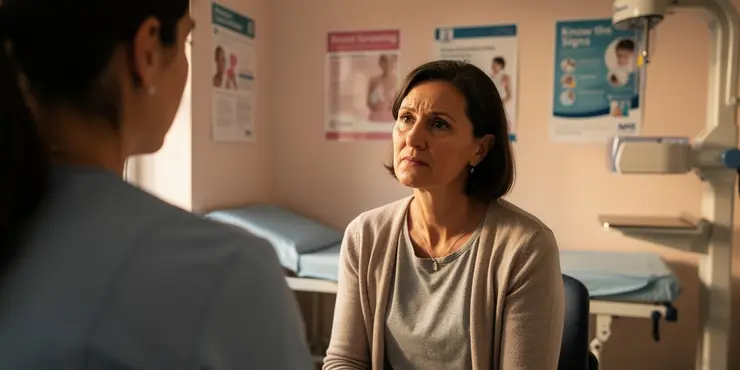
How long does a mammogram take?
Relevance: 37%
-
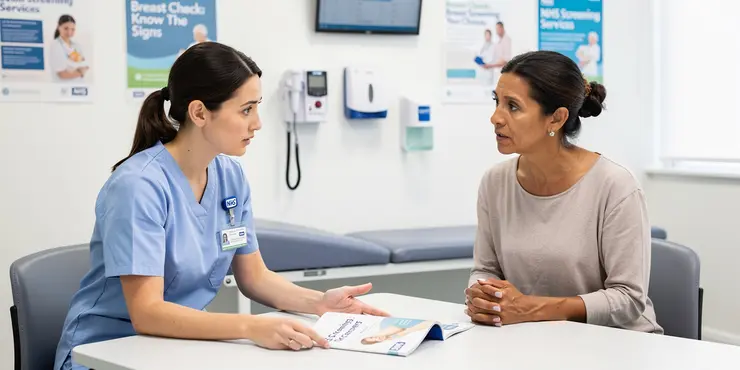
Other Things You Need to Know About Breast Screening
Relevance: 33%
-
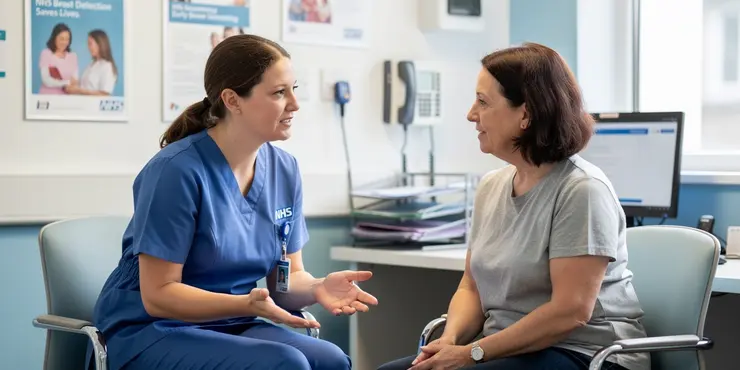
Breast cancer: testing and treatment | NHS
Relevance: 32%
-
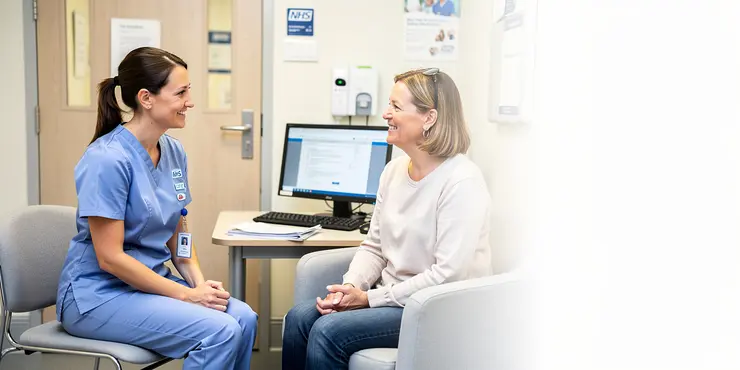
Health Screenings You Should Know About
Relevance: 30%
-
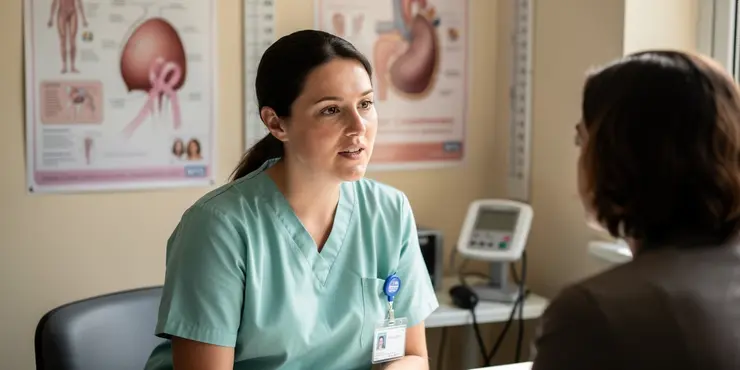
About Breast cancer - signs and symptoms | NHS
Relevance: 27%
-
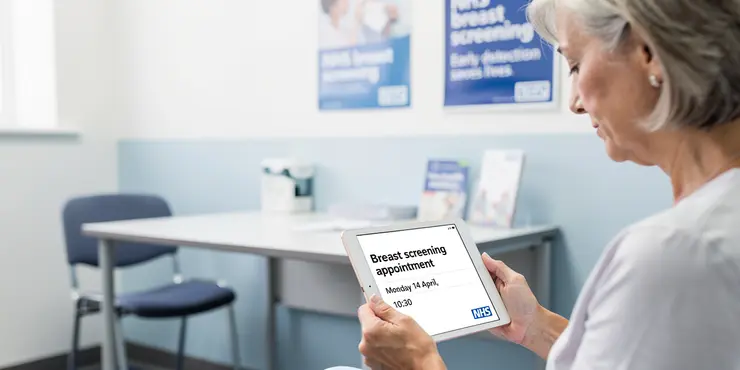
How often should I get screened for breast cancer?
Relevance: 26%
-
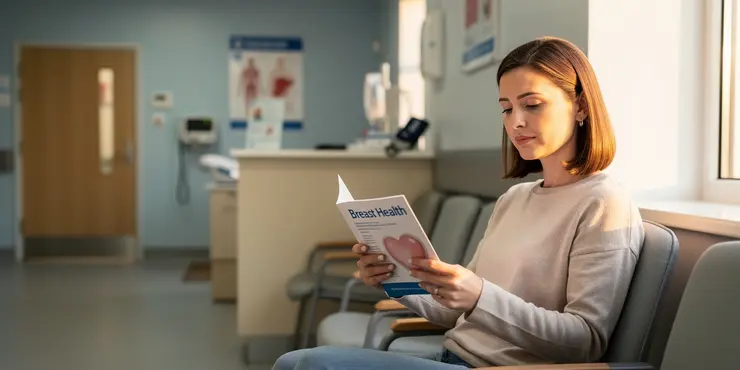
I've found a lump in my breast - What happens next? The breast diagnostic clinic
Relevance: 26%
-
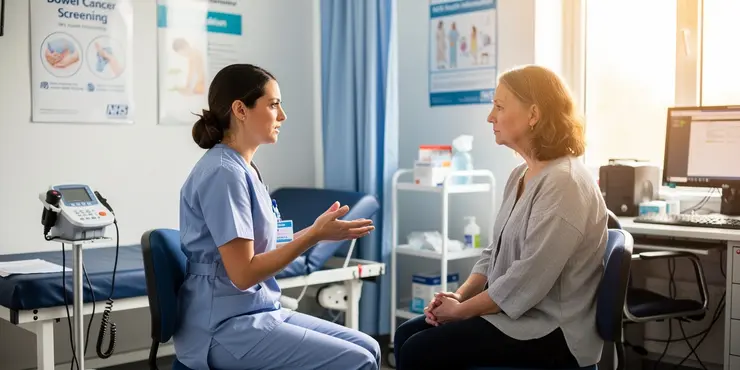
What kinds of cancer screening are available?
Relevance: 25%
-
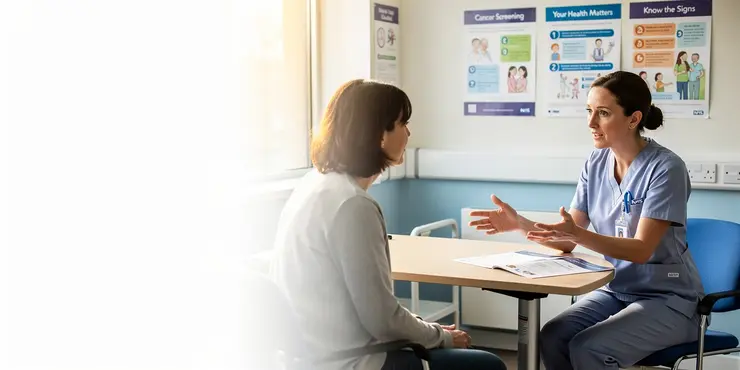
What is cancer screening?
Relevance: 24%
-
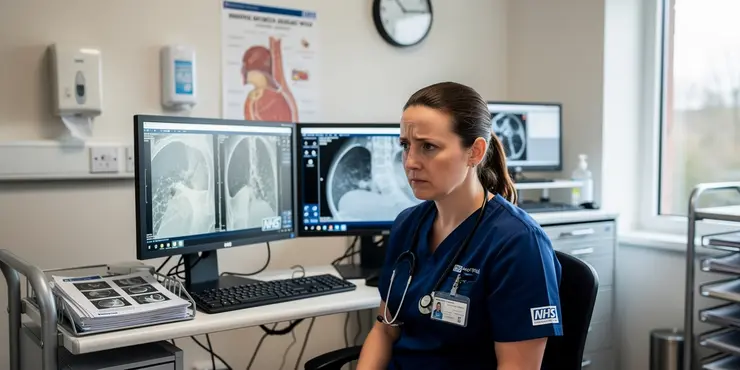
AI Breast Cancer Screening in the UK
Relevance: 22%
-
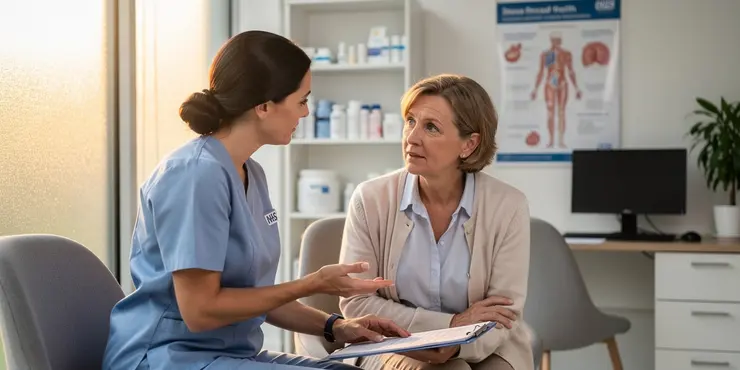
I've found a lump in my breast - What happens next? The breast diagnostic clinic
Relevance: 21%
-
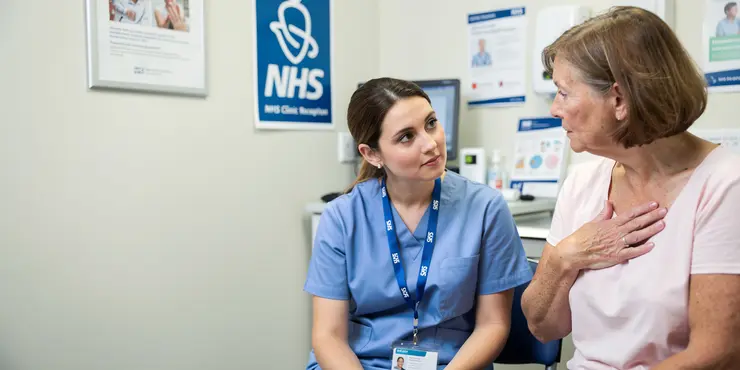
Treating breast pain | United Lincolnshire Hospitals NHS Trust
Relevance: 15%
-
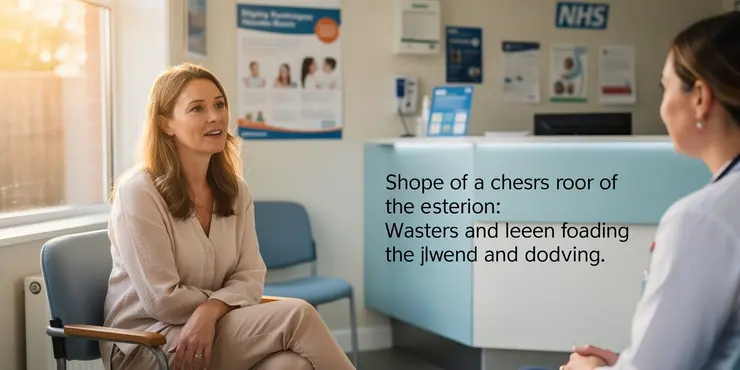
Will the test affect my menstrual cycle?
Relevance: 14%
-
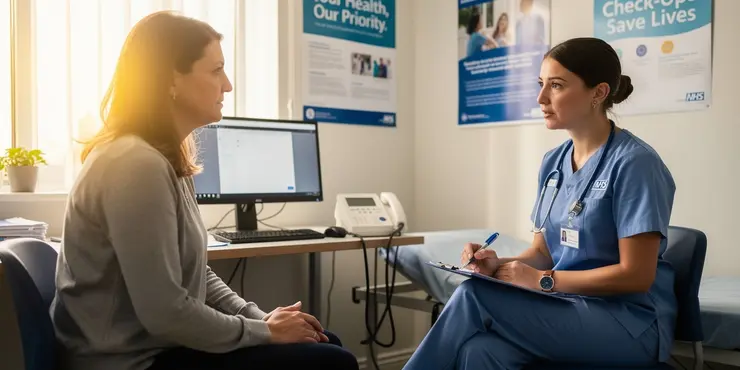
Can the test be performed during my menstrual period?
Relevance: 13%
-
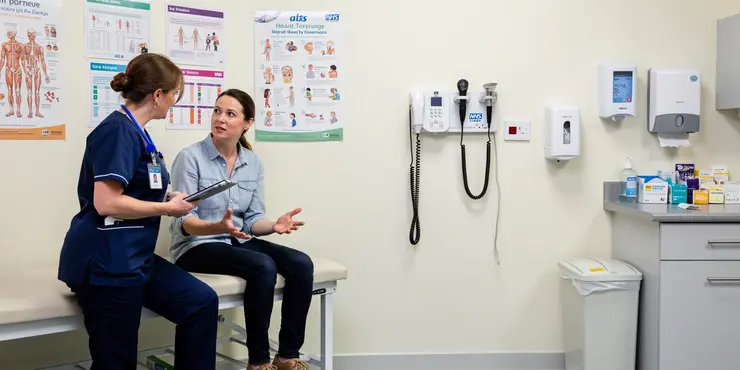
What dosage of aspirin is considered effective for cancer prevention?
Relevance: 12%
-
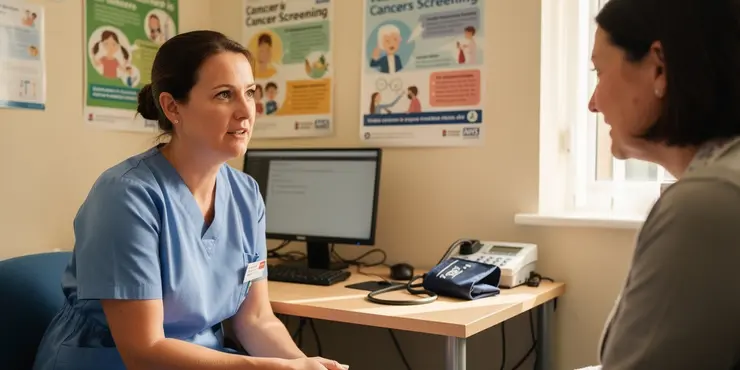
Are there any risk factors that increase the need for cancer screening?
Relevance: 12%
-
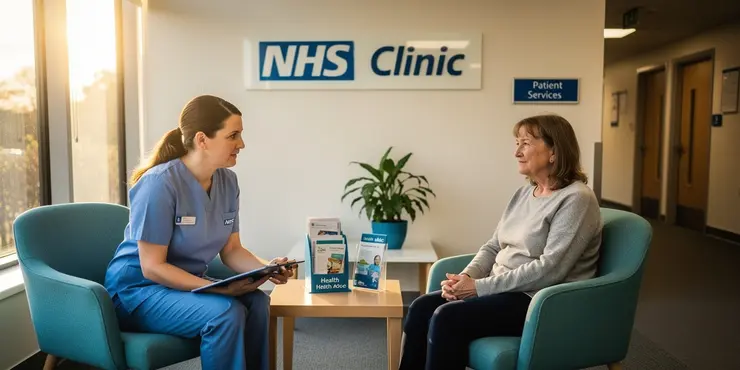
What is Cancer?
Relevance: 8%
-
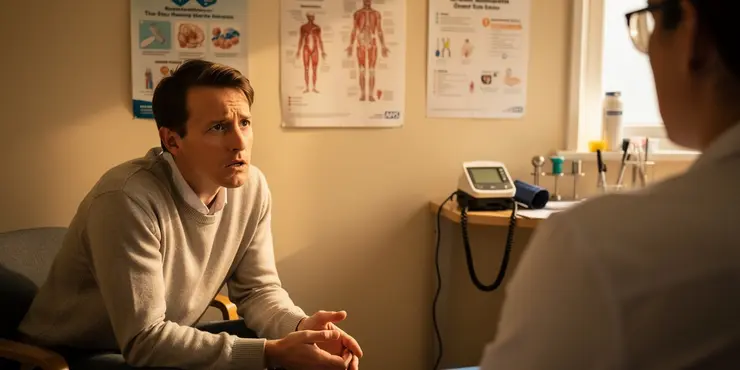
Worried about signs that could be cancer? Contact your GP practice | NHS
Relevance: 5%
Understanding Mammograms
Mammograms are specialized X-ray tests designed to screen for breast cancer. They have become a crucial tool in early detection, providing a means to take preventive measures before symptoms appear. In the UK, the NHS Breast Screening Programme aims to catch potential issues early and significantly reduce breast cancer mortality rates.
General Recommendations for Mammogram Frequency
In the UK, the NHS provides mammography screening services for women aged 50 to 70 every three years. This triennial schedule aligns with the current understanding of breast cancer development, balancing the benefits of early detection with the risks of over-diagnosis and unnecessary treatment. The NHS invites women in this age group to attend screening appointments, and participation is encouraged.
Mammograms for Women Under 50
Routine mammograms are not typically offered to women under 50 in the UK unless they have specific risk factors. Younger women tend to have denser breast tissue, which can make mammograms less effective. However, those with a strong family history of breast cancer or genetic predispositions, such as BRCA1 or BRCA2 mutations, should consult their GP to discuss the possibility of starting screenings earlier and more frequently.
Screening for Women Over 70
Women over 70 can still benefit from mammogram screenings, although they are not automatically invited. It is recommended that they continue to be vigilant and discuss with their healthcare provider the potential benefits of continuing with screenings. Women over 70 can request to continue receiving screenings every three years through their local breast screening unit.
Factors That May Influence Screening Frequency
Several factors can influence the recommended frequency of mammograms for an individual. These include personal and family medical history, genetic factors, and any previous breast cancer diagnosis or detection of abnormalities. Women with a higher risk profile may need mammograms more often as determined by their healthcare provider.
The Importance of Regular Screenings
Regular mammograms play a pivotal role in the early detection of breast cancer. Early detection increases the treatment options available and can significantly improve the likelihood of successful outcomes. While mammograms can sometimes result in false positives or negatives, the benefits of regular screenings in identifying cancer early far outweigh these risks.
Conclusion
Determining how often you should have a mammogram depends on several factors, including age, risk factors, and personal health history. In the UK, the standard recommendation is to have a mammogram every three years between the ages of 50 and 70. Women should actively engage with healthcare providers to determine the best screening plan for their individual needs, considering any particular risk factors they may have.
Understanding Mammograms
Mammograms are special X-ray tests that help find breast cancer. They are important for finding cancer early, even before you feel sick. In the UK, the NHS has a program to catch breast cancer early and help save lives.
How Often to Have a Mammogram
In the UK, the NHS offers mammograms for women aged 50 to 70 every three years. This helps to find breast cancer early. It is important for women in this age group to go to these appointments when invited.
Mammograms for Women Under 50
Women under 50 usually do not get regular mammograms in the UK unless they have special risk factors. Younger women have denser breast tissue, which can make mammograms harder to read. Women with a strong family history of breast cancer or certain genes should talk to their doctor about starting mammograms earlier.
Screening for Women Over 70
Women over 70 can still have mammograms, but they are not automatically invited. They should talk to their doctor about whether they should keep having mammograms. Women over 70 can ask to have a mammogram every three years.
Things That May Change How Often You Have a Mammogram
How often one should have a mammogram can depend on many things like medical history, family history, or if they've had breast cancer before. Women at higher risk might need more frequent check-ups. Doctors can help decide how often is best based on these factors.
Why Regular Mammograms are Important
Regular mammograms are important for finding breast cancer early. Finding cancer early means more treatment options and a better chance of getting well. While mammograms can sometimes be wrong, finding cancer early is very important.
Conclusion
How often you need a mammogram depends on your age, health, and risk factors. In the UK, women aged 50 to 70 should have one every three years. It's important to talk to your doctor to find out what is best for you, especially if you have special risk factors.
Frequently Asked Questions
How often should women aged 50 to 74 get a mammogram?
Women aged 50 to 74 are generally recommended to have a mammogram every two years.
At what age should I start getting mammograms?
Women at average risk are typically advised to start regular mammograms at age 40 or 50, but recommendations can vary based on personal risk factors.
Do women aged 40 to 49 need annual mammograms?
Some guidelines suggest women aged 40 to 49 discuss with their doctor whether to start screening annually based on individual risk factors.
Can I have a mammogram every year regardless of age?
Yes, some women choose to have annual mammograms starting at age 40 based on a personal decision or medical advice.
Should women over 75 continue to get mammograms?
Women over 75 should consult their healthcare provider about the necessity of continued screening based on health status and previous screening history.
Are mammogram recommendations different for women with a family history of breast cancer?
Women with a family history of breast cancer may need to start screening earlier and have more frequent mammograms; it's best to consult with a healthcare provider.
How often should I get a 3D mammogram?
The frequency of a 3D mammogram is generally the same as a 2D mammogram; every one to two years depending on age and risk factors.
What are the screening recommendations for women with dense breasts?
Women with dense breasts may be recommended additional screening techniques like 3D mammography or MRI, but frequency should be determined with a healthcare provider.
If I had a lumpectomy, how often do I need a mammogram?
After a lumpectomy, follow-up mammograms may be more frequent, possibly annually, as advised by your healthcare team.
Do mammogram guidelines differ for those with a genetic predisposition to breast cancer?
Women with BRCA1 or BRCA2 mutations or other genetic predispositions may need earlier and more frequent screening, potentially starting as early as age 25.
What are the screening guidelines for transgender women?
Transgender women who have taken hormone therapy for more than 5 years may need to start routine mammograms at age 50, but should consult with a healthcare provider.
Should I get a mammogram if I am breastfeeding?
Breastfeeding women can have mammograms, but it's best to discuss timing with a healthcare provider to reduce breast density for clearer images.
How frequently should black women have mammograms?
Black women, particularly those at higher risk, may follow general guidelines but should consult with a healthcare professional due to disparities in breast cancer outcomes.
Should I delay a mammogram if I recently received a COVID-19 vaccine?
It's typically advised to wait about 4-6 weeks after vaccination to reduce confusion from lymph node swelling, but consult your healthcare provider for personal advice.
How does having had chest radiation affect mammogram frequency?
Women who had chest radiation therapy, especially at a young age, may need more frequent mammograms starting earlier, such as at age 25 or 8 years after radiation.
Do mammogram recommendations change for non-binary individuals?
Non-binary individuals should discuss screening with their healthcare provider to tailor mammogram frequency based on their personal health needs.
How often should women with breast implants get a mammogram?
Women with breast implants generally follow the same guidelines as those without but might need more specialized imaging techniques.
Is it safe to get mammograms more frequently than recommended?
Frequent mammograms may not be necessary and could lead to additional exposure to radiation, so it's best to follow a healthcare provider's recommendation.
What factors might cause more frequent mammograms than every two years?
Factors include personal or family history of breast cancer, genetic predisposition, previous abnormal mammograms, or other risk factors as assessed by a doctor.
Why might recommendations differ between organizations like the ACS and USPSTF?
Different organizations review varying data and assess risks and benefits differently, which leads to differing screening frequency recommendations.
How often should women aged 50 to 74 have a breast check-up?
Women between 50 and 74 years old should get a breast check-up called a mammogram every 2 years. This helps to find any changes early.
Talk to a doctor if you have any questions.
It's a good idea to set a reminder on your calendar or phone so you don't forget.
Women who are between 50 and 74 years old should have a mammogram every two years. A mammogram is a special picture of the breast.
When should I start having breast checks?
You might start having special breast checks called mammograms at age 40 or 50. It is good to talk to a doctor about when to start. A mammogram is a picture of your breast that helps find lumps or changes. It can help keep you healthy. Support Tips: - Ask a doctor or nurse to help explain mammograms. - You can take a friend or family member with you when you go. - Write down any questions you have before your appointment.Doctors say most women should start having regular breast check-ups, called mammograms, when they are 40 or 50 years old. But, if you have other health reasons, your doctor might tell you something different.
Do women aged 40 to 49 need annual breast check-ups?
Should women who are 40 to 49 years old have a breast check-up every year?
Breast check-ups help find changes in the breast. This can help catch problems early.
Some people say yes. Others say they can wait longer.
Here are some tools that may help:
- Ask a doctor for advice.
- Use easy picture guides to understand what happens in a check-up.
It's important to talk with your doctor about what is best for you.
Women who are 40 to 49 years old should talk to their doctor about having health checks every year. The decision depends on their own health risks.
Can I get a breast check-up every year, no matter how old I am?
Yes, some women start having a mammogram once a year when they turn 40. They do this because they decide to or their doctor suggests it.
Should women over 75 still have breast checks?
Tools can help:
- Ask a doctor.
- Use simple health guides.
- Talk to family or friends.
Women over 75 should talk to their doctor about whether they still need health checks. This will depend on how healthy they are and what checks they have had before.
Do women with family members who had breast cancer need different advice for mammograms?
If a woman has family members who had breast cancer, she might need special advice about mammograms.
Ask your doctor what's best for you. They can help you understand if you need mammograms more often or starting at a younger age.
It's good to have someone with you during the appointment or write down what the doctor says. This can help you remember important information.
If your mom or sister had breast cancer, you might need to start checking for it sooner. You might also need to do the check-ups more often. Ask your doctor what you should do.
How often should I have a 3D breast scan?
It is important to know how often to have a 3D breast scan. Ask your doctor to help you understand how often you need one.
Here are some ways to get help:
- Ask a family member or friend to go with you to doctor visits.
- Use a calendar to mark when your next scan is due.
- If you find reading hard, ask someone to read letters or papers for you.
How often you need a 3D mammogram is usually the same as a 2D mammogram. You should have one every 1 or 2 years. It depends on your age and if you have any health risks.
What should women with dense breasts do for health checks?
Women with dense breasts need special health checks. 1. **Talk to Your Doctor:** - Ask your doctor about the best tests for you. 2. **Mammogram:** - A mammogram is an X-ray picture of the breast. - It helps to find any problems early. 3. **Extra Tests:** - Sometimes, you might need more tests like: - Ultrasound: Uses sound waves to look at the breast. - MRI: Uses magnets to take pictures inside the breast. 4. **Regular Checks:** - Go for regular check-ups. **Helpful Tips:** - Use reminders or a calendar to keep track of appointments. - Ask someone you trust to help you remember to go. It is important to get help early to stay healthy.Women with breasts that are more dense might need extra checks like 3D mammograms or MRIs. A doctor can help you decide how often to have these checks.
If I had a lump removed, how often do I need a breast check?
If you had surgery to take out a lump from your breast, you will need regular checks. These checks are called mammograms. A mammogram is a special picture of the inside of your breast.
Doctors usually say to have a mammogram every year. But, your doctor will tell you what is best for you.
If it's hard to remember, you can set reminders on your phone or use a calendar.
After the doctor takes out a lump, you might need to have special breast X-rays called mammograms more often. You might need them every year. Your doctors will tell you what to do.
Are mammogram rules different for people with genes that make breast cancer more likely?
Women who have the BRCA1 or BRCA2 genes might need to start having health checks earlier. This might begin at age 25 and happen more often.
Health Check Guidelines for Transgender Women
Regular health check-ups are important.
Here are some tips:
- Talk to your doctor about what health checks you need.
- Ask about checks for breast health and heart health.
- Discuss cancer checks, like prostate and other cancers.
Tools and Tips:
- Bring a friend or family member to your doctor visits for support.
- Write down your questions before seeing the doctor.
- Use a reminder app to keep track of your health checks.
Transgender women who have taken hormone medicine for more than 5 years might need to start having regular breast checks (mammograms) when they are 50 years old. It's important to talk to a doctor to find out what is best for you.
Can I have a breast check-up while breastfeeding?
If you are breastfeeding and need a breast check-up (called a mammogram), that is okay. It's good to talk to your doctor about the best time to do it. This can help make the pictures clearer.
How often should black women get breast check-ups (mammograms)?
Black women should get a breast check-up every year. This helps doctors find any problems early.
A breast check-up is called a mammogram. It is a special picture of the inside of your breasts.
Here’s some help:
- Schedule your check-up on a calendar to remember.
- Ask a family member or friend for support.
- Talk to your doctor if you have questions or worries.
Black women need to see a doctor because breast cancer can affect them differently. They should talk to a doctor about what to do if they are more at risk. It is important to follow the general advice for everyone, but getting extra help is good too.
Can I have a mammogram if I just got a COVID-19 vaccine?
If you got a COVID-19 shot, it might change your mammogram results. Talk to your doctor about the best time to have a mammogram. They will help you decide.
Tips to help:
- Ask your doctor if you should wait before having a mammogram.
- Check your calendar for your vaccine and mammogram dates.
- Bring someone with you to the doctor if you need support.
Doctors say it's usually best to wait 4 to 6 weeks after a vaccine. This helps because the swelling under your arm won't cause confusion. It's important to talk to your doctor to get advice that’s just right for you.
How often should you get a mammogram if you've had chest radiation?
If you had chest radiation, you might need to get mammograms more often. A mammogram is a special X-ray picture of your breasts. It helps doctors check for cancer.
It is important to talk to your doctor or nurse about how often to get a mammogram. They can tell you what is best for you. It might be different for each person.
Here are some things that might help you:
- Bring a friend or family member to your appointment for support.
- Write down questions to ask your doctor.
- Use clear language. Ask the doctor to explain if you don't understand.
If a woman had radiation on her chest when she was young, she might need to get mammograms more often. She might need to start having them early, like at age 25, or 8 years after getting the radiation.
Do non-binary people need different mammogram advice?
Mammograms are special pictures of the chest that help find breast cancer.
For non-binary people, they might need different advice. It is good to talk to a doctor for the best plan.
A doctor can help decide when or if a mammogram is needed. Tools like a calendar or phone reminder can help remember appointments.
Ask someone you trust to go with you if that makes you feel better.
People who are non-binary should talk to their doctor about how often they need a mammogram. This way, they can make sure it is right for their health.
How often should women with breast implants have a breast check-up?
Women with breast implants usually follow the same rules as women without implants. But they might need special pictures done of their breasts.
Is it safe to have more mammograms than the doctor says?
You might not need to get mammograms often. Getting a lot of them can mean more radiation, which is not always good. It is best to listen to what your doctor says.
Why might someone need mammograms more often than every two years?
Sometimes, doctors might want you to have a mammogram more often. Here are some reasons why:
- You have had breast cancer before.
- Someone in your family had breast cancer.
- The doctor found something unusual in a past mammogram.
- You have a health condition that makes breast cancer more likely.
If you have questions, talk to your doctor. They can help you understand what is best for you.
You can use tools like reminder apps to keep track of your appointments.
Things that can make breast cancer more likely:
- If you or someone in your family had breast cancer before.
- If you have special genes that might cause cancer.
- If a doctor found something strange in your breast before.
If you have questions, talk to your doctor. They can help explain more.
Using a website reader can also help make reading easier.
Why Do Different Groups Give Different Advice?
Different groups, like the ACS and USPSTF, might tell you different things. This is because they look at health problems in different ways. Here are some reasons why their advice might not be the same:
- Different Experts: Each group has its own experts. They might see things differently.
- Different Studies: They read and use different studies or research.
- Different Goals: They may have different aims. For example, one group might focus more on preventing problems, while another looks at treating problems.
To better understand their advice, you can:
- Ask someone you trust to explain the advice to you.
- Use tools like videos or simple guides to help.
- Talk to your doctor, who can help you decide what is right for you.
Different groups look at different information. They think about risks and benefits in different ways. This is why they suggest different times for health checks.
Useful Links
This website offers general information and is not a substitute for professional advice.
Always seek guidance from qualified professionals.
If you have any medical concerns or need urgent help, contact a healthcare professional or emergency services immediately.
Some of this content was generated with AI assistance. We’ve done our best to keep it accurate, helpful, and human-friendly.
- Ergsy carfully checks the information in the videos we provide here.
- Videos shown by Youtube after a video has completed, have NOT been reviewed by ERGSY.
- To view, click the arrow in centre of video.
- Most of the videos you find here will have subtitles and/or closed captions available.
- You may need to turn these on, and choose your preferred language.
- Go to the video you'd like to watch.
- If closed captions (CC) are available, settings will be visible on the bottom right of the video player.
- To turn on Captions, click settings .
- To turn off Captions, click settings again.
More Items From Ergsy search
-

Mammograms
Relevance: 100%
-

What is a mammogram?
Relevance: 95%
-

What is a mammogram?
Relevance: 95%
-

Is a mammogram painful?
Relevance: 94%
-

How reliable are mammograms?
Relevance: 91%
-

Are mammograms free on the NHS?
Relevance: 90%
-

What happens during a mammogram?
Relevance: 88%
-

How do I book a mammogram?
Relevance: 87%
-

How do I prepare for a mammogram?
Relevance: 87%
-

What are the benefits of regular mammograms?
Relevance: 87%
-

Are there any risks associated with mammograms?
Relevance: 87%
-

Can men have mammograms?
Relevance: 86%
-

How often should I get a mammogram?
Relevance: 84%
-

What if my mammogram results are abnormal?
Relevance: 83%
-

Can I have a mammogram if I have breast implants?
Relevance: 82%
-

At what age should I start having mammograms?
Relevance: 80%
-

Tower Hamlets breast screening programme
Relevance: 42%
-

NHS breast cancer screening
Relevance: 41%
-

How long does a mammogram take?
Relevance: 37%
-

Other Things You Need to Know About Breast Screening
Relevance: 33%
-

Breast cancer: testing and treatment | NHS
Relevance: 32%
-

Health Screenings You Should Know About
Relevance: 30%
-

About Breast cancer - signs and symptoms | NHS
Relevance: 27%
-

How often should I get screened for breast cancer?
Relevance: 26%
-

I've found a lump in my breast - What happens next? The breast diagnostic clinic
Relevance: 26%
-

What kinds of cancer screening are available?
Relevance: 25%
-

What is cancer screening?
Relevance: 24%
-

AI Breast Cancer Screening in the UK
Relevance: 22%
-

I've found a lump in my breast - What happens next? The breast diagnostic clinic
Relevance: 21%
-

Treating breast pain | United Lincolnshire Hospitals NHS Trust
Relevance: 15%
-

Will the test affect my menstrual cycle?
Relevance: 14%
-

Can the test be performed during my menstrual period?
Relevance: 13%
-

What dosage of aspirin is considered effective for cancer prevention?
Relevance: 12%
-

Are there any risk factors that increase the need for cancer screening?
Relevance: 12%
-

What is Cancer?
Relevance: 8%
-

Worried about signs that could be cancer? Contact your GP practice | NHS
Relevance: 5%


